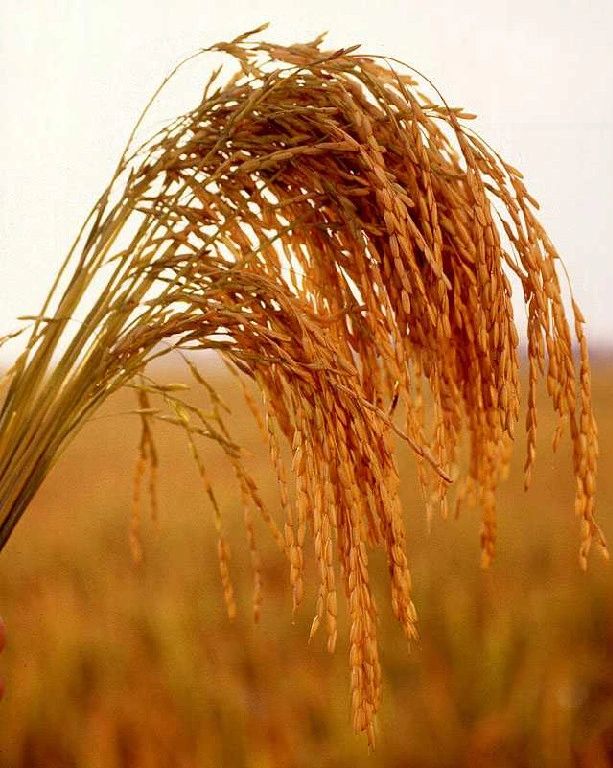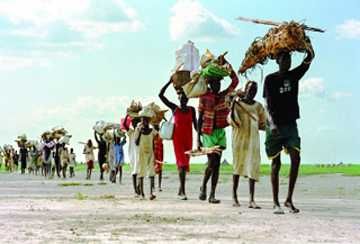
Give Thanks 112410
Happy Thanksgiving 112410
Last year for Thanksgiving the Prospect deconstructed the holiday to reveal what most people know: the pilgrims were disease ridden opportunists who spread death and larceny up and down the east coast of the continent. They would have died if they hadn’t been able to loot the stores of Native American villages emptied by disease brought in by Europeans.
This year, the Prospect is going to take a little different approach. The subject for discussion is giving thanks.

It’s a great image, the pilgrims proper in their odd attire and big hat buckles warmly welcoming the primitive people to the bounty of their table and to share in thanks to God for providing the harvest. As a national ideal, there’s nothing wrong with it.
Even considering the reality of the situation, that the Europeans were giving thanks to God that enough of the Indians had died to open rich fields, and enough had lived to show them how to survive and to provide cheap labor, there’s nothing really unusual about it.
In fact, we’re suggesting we give thanks in the same way, to God or Providence, for the fact that we live, and we have food and are relatively safe, and to realize that someone in the world is doing with less so we can have more, and thanking them, as well.
Like any empire, the United States has done well by buying low and selling high. For many years we bought oil very low. It was good to have the right to have fifty cent gasoline while Europeans were already spending a dollar a liter.
The thing is, when we buy low we are very often essentially stealing from someone less fortunate. We devalue their natural resources and we devalue their labor.
With our wealth, we help ourselves to more than our share of many things, especially oil. We pay more than we like, which raises the price to more than many can afford.
This isn’t something we need feel guilty about too much longer. The fat times are pretty well over. Many of the world’s poor are learning to compete with our workers, and our engineers and technocrats.
Still, we’ve got it great in the U.S., at least most of us. Though of course 44 million of us are on food stamps. At least we have food stamps.
In the world, right now, at least a billion people are hungry. Not, “peckish” but really hungry. Starvation is among the most miserable of deaths, with each body system suffering and giving up in turn. Every five seconds, somewhere in the world, a child dies of starvation or malnutrition. One, two, three, four, five; a child died. One, two, three…
Most people in the world eat rice, wheat or corn as a mainstay. In the US we eat plenty of all three, and a great deal of meat. Cheap corn and the cheap meat it produces may be killing us, but it’s still a nicer way to go than starvation. If you aren’t hungry, give thanks.

Rice, U.C. Davis

Wheat, from Pakistan

Corn, from a lost source

Coronary Artery Disease from HERE
If you aren’t a kid in Rio, or a hundred other cities where children are commonly sold, you’re lucky, give thanks. Children are cheap to rent or to buy, and in many countries one can purchase a child as an infant and raise it to be a servant. Children soldiers under the age of 16 are common in several places in the world. If you’re not a kid there, give thanks.
If you aren’t living in Sudan, be glad. Civil war there has killed over 1.5 million people and made refugees of millions more. If you aren’t fleeing death in Sudan, give thanks.
If you aren’t a poor Haitian dying of cholera, give thanks, and ask, why was someone else born a Haitian on my birthday, but not me?

Refugees in Sudan from HERE
It isn’t a cheap “there but for the Grace of God go I” sentiment. It’s statistics. Of all the kids born in the world today, a sixth will be hungry much of their lives, and of course every five seconds one of them will die. One...two...three...four...five.
Life is dangerous, there are no guarantees even for Americans, if you aren’t suffering misery, you’re lucky, at least for the moment. Give thanks!
What people around the world eat from Time
Last year for Thanksgiving the Prospect deconstructed the holiday to reveal what most people know: the pilgrims were disease ridden opportunists who spread death and larceny up and down the east coast of the continent. They would have died if they hadn’t been able to loot the stores of Native American villages emptied by disease brought in by Europeans.
This year, the Prospect is going to take a little different approach. The subject for discussion is giving thanks.

It’s a great image, the pilgrims proper in their odd attire and big hat buckles warmly welcoming the primitive people to the bounty of their table and to share in thanks to God for providing the harvest. As a national ideal, there’s nothing wrong with it.
Even considering the reality of the situation, that the Europeans were giving thanks to God that enough of the Indians had died to open rich fields, and enough had lived to show them how to survive and to provide cheap labor, there’s nothing really unusual about it.
In fact, we’re suggesting we give thanks in the same way, to God or Providence, for the fact that we live, and we have food and are relatively safe, and to realize that someone in the world is doing with less so we can have more, and thanking them, as well.
Like any empire, the United States has done well by buying low and selling high. For many years we bought oil very low. It was good to have the right to have fifty cent gasoline while Europeans were already spending a dollar a liter.
The thing is, when we buy low we are very often essentially stealing from someone less fortunate. We devalue their natural resources and we devalue their labor.
With our wealth, we help ourselves to more than our share of many things, especially oil. We pay more than we like, which raises the price to more than many can afford.
This isn’t something we need feel guilty about too much longer. The fat times are pretty well over. Many of the world’s poor are learning to compete with our workers, and our engineers and technocrats.
Still, we’ve got it great in the U.S., at least most of us. Though of course 44 million of us are on food stamps. At least we have food stamps.
In the world, right now, at least a billion people are hungry. Not, “peckish” but really hungry. Starvation is among the most miserable of deaths, with each body system suffering and giving up in turn. Every five seconds, somewhere in the world, a child dies of starvation or malnutrition. One, two, three, four, five; a child died. One, two, three…
Most people in the world eat rice, wheat or corn as a mainstay. In the US we eat plenty of all three, and a great deal of meat. Cheap corn and the cheap meat it produces may be killing us, but it’s still a nicer way to go than starvation. If you aren’t hungry, give thanks.

Rice, U.C. Davis

Wheat, from Pakistan

Corn, from a lost source

Coronary Artery Disease from HERE
If you aren’t a kid in Rio, or a hundred other cities where children are commonly sold, you’re lucky, give thanks. Children are cheap to rent or to buy, and in many countries one can purchase a child as an infant and raise it to be a servant. Children soldiers under the age of 16 are common in several places in the world. If you’re not a kid there, give thanks.
If you aren’t living in Sudan, be glad. Civil war there has killed over 1.5 million people and made refugees of millions more. If you aren’t fleeing death in Sudan, give thanks.
If you aren’t a poor Haitian dying of cholera, give thanks, and ask, why was someone else born a Haitian on my birthday, but not me?

Refugees in Sudan from HERE
It isn’t a cheap “there but for the Grace of God go I” sentiment. It’s statistics. Of all the kids born in the world today, a sixth will be hungry much of their lives, and of course every five seconds one of them will die. One...two...three...four...five.
Life is dangerous, there are no guarantees even for Americans, if you aren’t suffering misery, you’re lucky, at least for the moment. Give thanks!
What people around the world eat from Time
